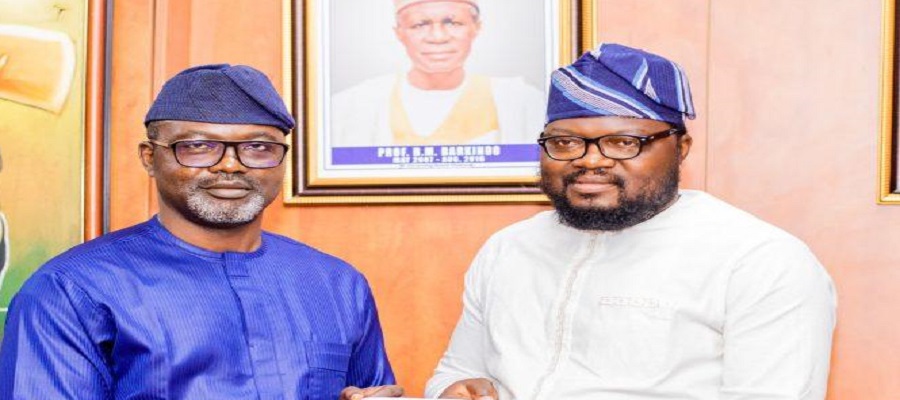News
Nigeria Loses $243m in 51 Days after Twitter Ban

The decision by President Muhammadu Buhari’s government to ban Twitter in Africa’s most populous country in June, has dealt a blow to its revenue ambitions, according to africanews.com

According to Netblocks Cost of Shutdown Tools, which uses the classic Free Digital App GDP impact technique, Nigeria has lost at least $243 million in the past 51 days since the Twitter shutdown.
Despite this, Twitter on Thursday posted stronger-than-expected earnings for the second quarter thanks to growing advertising demand across all geographic regions and types of ad products.
The San Francisco-based company earned $65.6 million, or 8 cents per share, in the April-June quarter. That’s up from a loss of $1.38 billion, or $1.75 per share, a year earlier.
In Nigeria, Twitter recorded $1.19 billion in revenue in Q2 2021, against the $683.4 million Twitter reported for the corresponding period of Q2 2020.
The United Nations, foreign capitals from Washington to London and rights groups have all condemned the ban as a threat to freedom of expression.
Nigeria’s broadcast regulator took a step further, ordering television and radio channels to suspend their Twitter accounts and stop using the social media giant for news, branding its use as “unpatriotic.”
Even using a VPN to access the platform would lead to investigation and possible suspension of broadcast licenses.
For a young channel like News Central, expanding but still fighting for its place in the market, the Twitter ban is a setback.
“We largely depend on the referrals we get from Twitter to attract to our YouTube Channel, and to our channel on the satellite StarTimes,” Oladayo Martins, head of the digital for News Central told AFP.
“The last report shows a drop of 40 percent of our viewers in the past five days. We are a pan-African channel, but driven mostly by the Nigerian youth.”
– Army of the young –
In Africa’s largest economy, three-quarters of the population of 200 million are younger than 24 — a generation that is also hyper-connected to social media.
Young activists turned to Twitter last year to organize the #EndSARS protests against police brutality that eventually grew into the largest demonstrations in Nigeria’s modern history before they were repressed.
For broadcasters, social media is more than an essential tool.
“We show our lives on Facebook, we show our lives on Instagram, but when we want to have a conversation or when we want to debate social issues, we use Twitter,” said Tolulope Adeleru-Balogun, the head of programming.
One of the chain’s flagship programmes, NC Trendz, discusses hot topics on the Web with its trends and hashtags to give a pulse of society.
“We used to talk about gender-based issues, in Uganda we followed the opponent Bobi Wine house arrest, we used it in South Africa also during the lockdown,” she said.
“It is an important barometer for us to understand and know what a big proportion of people say in their country. Africa is not a (single) country, but a lot of our problems, as young Africans, are similar. And Twitter brings the continent together.”
– Stability a priority –
Buhari’s government has defended the decision, saying that Twitter had become a platform for activities threatening the country’s stability, particularly for an outlawed separatist group in the southeast.
Information Minister Lai Mohammed this week dismissed worries about freedom of expression saying Nigeria’s stability was a priority. He said social media companies would now have to register and license locally in Nigeria.
But rights groups question the legality of the decision. Nigeria parliament has not passed legislation regarding to the ministry’s move against Twitter.
One broadcaster has already decided to take the government to court.
“Criminalizing the use of Twitter is also excessive and unlawful, there’s no provision within our laws that support such draconian policies and practices,” Osai Ojigho, country director for Amnesty International in Abuja.
The ban has provoked some calls for protests online or on the street, but for the moment Nigerian broadcasters are following the ministry’s orders.
At Arise News, a private channel popular with Nigerian youth, social media remains an essential tool for growth.
The broadcaster’s YouTube channel grew from 40,000 subscribers last year to 145,000 this year. Arise’s Twitter account leaped from 39,000 subscribers in 2020 to more than 292,000 now.
In Arise’s offices in a glass office tower in Lagos’ chic Ikoyi district, journalists have disconnected the VPNs. But Arise tweets still flow from their offices in London and Washington.
“Fortunately, we still have a lot of engagement coming from the diaspora in the UK, in the US,… and a lot of young Nigerians use VPN,” said Agharim Irabor-Omoruyi, social media manager.
On Thursday morning, #AriseNews was the most shared trend for Nigerian web users, despite the ban.
On the same day, the channel got a visit from President Buhari, 78, for his first interview since the start of his second term two years ago.
Asked the question that everyone was waiting to know, when and if Twitter was going to be restored, the head of state smiled and replied that he was keeping the answer to himself.
News
LG Launches “Radio Optimism” Campaign to Spread “Life’s Good” Through Music

LG Electronics has launched a new brand campaign, “Radio Optimism,” designed to help strengthen meaningful human connections and spread optimism through shared musical experiences.

This initiative aligns with LG’s brand promise, “Life’s Good,” and addresses the growing challenge of forming genuine relationships in a technology-driven world.
The Radio Optimism campaign seeks to counteract the disconnection often felt in an era dominated by superficial interactions, such as likes and comments on social media. By harnessing the power of music, LG aims to foster deeper bonds among individuals, promoting a more fulfilling life.
“As technology advances, meaningful human connections become increasingly vital to enrich our lives. LG continues its commitment to bringing optimism into customers’ daily lives, staying true to our enduring brand promise of ‘Life’s Good,’” said Kim Hyo-eun, head of LG’s Brand Management Division.
This campaign reinforces LG’s commitment to creating enriching experiences in digital spaces where today’s consumers spend significant time. Building on this mission, LG has continuously engaged with younger audiences through participatory campaigns that bring the Life’s Good philosophy to life.
Last year’s “Optimism your feed” campaign leveraged social algorithms to foster positivity on social media. This new initiative specifically seeks to address the paradoxical disconnection in an era of hyper-connectivity.
“One of the most reliable predictors of happiness is having deep and meaningful relationships,” said Jean M. Twenge, Professor of Psychology at San Diego State University. “Yet today, many people are spending more time online and less time connecting in person. Social media in particular tends to create shallow relationships rather than the deep connections people need.
“It’s common for people to have hundreds of followers but no one to talk to in real life if they need support. We need to build more meaningful connections with those around us. That might turn around the pronounced decline in happiness that’s occurred over the last decade.”
A new global study* from LG on social connection reveals that 68 percent of people find it harder to make real friends, and a third reported having one or fewer meaningful connections in the past month, with 8 percent experiencing none at all.
Inspired by traditional radio’s unique way of connecting people through music and storytelling, the Radio Optimism campaign transforms this concept into an interactive platform where participants can create and send personalized songs to their loved ones.
Users can easily create new songs using AI-powered tools, which are thoroughly trained on a curated music dataset. These tools interpret user prompts to produce unique musical pieces and generate matching album art, providing an engaging and personalized experience. Once generated, these songs can be sent to recipients to deepen their connection and made available for others to discover worldwide.
According to the survey, nearly 9 in 10 respondents believe that meaningful connections lead to a more optimistic outlook on life. By providing a platform for individuals to express their feelings, this campaign aims to foster deeper connections and help individuals enrich their lives while spreading optimism in their own ways.
The campaign website is available in English and Spanish, with plans to support additional languages in the coming months to enable broader participation. The official website can be found at RadioOptimism.lg.com.
News
Nigeria’s Electricity Output Climbs 10.92% in Q1 2025, Boosted by Thermal Plants

Nigeria’s electricity generation rose by 10.92% in the first quarter of 2025, driven by improved operational capacity and better availability of thermal and hydropower plants supplying the national grid.

This is according to the latest report from the Nigerian Electricity Regulatory Commission (NERC) for Q1 2025.
Total energy generated stood at 10,304.47 gigawatt-hours (GWh), up from 9,289.95 GWh recorded in the previous quarter. The increase highlights stronger performance across multiple power plants, supported by improved grid dispatch conditions.
NERC noted that average hourly generation on the grid also grew by 13.39%, rising to 4,770.59 megawatt-hours per hour (MWh/h) from 4,207.41 MWh/h in Q4 2024—an increase of 563.18 MWh/h.
“The hourly generation and the total generation increased by 13.39% and 10.92% respectively in Q1 2025 compared to Q4 2024. This rise is linked to an increase in the cumulative available generation capacity of grid-connected plants,” the report stated.
A total of 19 power plants boosted their output during the quarter, contributing significantly to the overall rise in generation.
Thermal power plants were the main drivers of growth. Out of the 23 thermal plants connected to the grid, 16 recorded higher average hourly output compared to the previous quarter.
Top contributors included Delta_1, which added 157.58 MWh/h, followed by Geregu_2 (71.95 MWh/h), Egbin_1 (68.20 MWh/h), and Afam_2 (68.03 MWh/h).
Hydropower plants also supported the growth, though at a smaller scale. The five grid-connected hydro stations posted a combined increase of 54.93 MWh/h, marking a 4% improvement. Zungeru_1 led with a 23.55% rise, while Shiroro_1 and Kainji_1 grew by 12.21% and 4.80% respectively.
This first-quarter improvement reflects ongoing efforts to stabilize power supply through better plant maintenance, enhanced grid management, and more consistent dispatch across regions.
However, challenges such as fuel supply to plants, equipment reliability, and high operating costs continue to limit the full potential of Nigeria’s power generation capacity.
News
DBI, Miva Open University Partner to Advance Digital Innovation, Education

Digital Bridge Institute (DBI) and Miva Open University, Abuja, have signed a Memorandum of Understanding (MoU) to jointly promote digital technology and academic excellence in computer science and innovation.

Mr. David Daser, president/CEO, DBI, and Professor Tayo Arulogun, vice chancellor, Miva Open University.
DBI, a Federal Government-owned ICT training institute with headquarters in Abuja and campuses across Nigeria’s six geo-political zones, hosted the signing ceremony at its headquarters.
The MoU marks a significant step in formalizing and strengthening the existing relationship between the two institutions.
Signing on behalf of their institutions were
Speaking during the event, Mr. Daser praised Professor Arulogun’s leadership and commitment to academic development, which he said made the partnership possible. He emphasized that unlike many MoUs that remain inactive, this collaboration is set to deliver tangible results.
“We value this partnership and are confident it will meaningfully contribute to Nigeria’s education sector. DBI is fully prepared to implement the agreement and drive an impact across our campuses in Enugu, Abuja, Kano, Lagos, Asaba, and Yola,” Daser said.
He added that the collaboration would strengthen DBI’s National Innovation Diploma (NID) program and other initiatives through shared resources and new opportunities.
Professor Arulogun, in his remarks, highlighted the need for greater collaboration among Nigerian universities, criticizing the prevalent “do-it-alone syndrome.”
“Many institutions prefer to operate in silos, but collaboration is key. Pooling resources and working together will enhance capacity and academic output,” he stated. “With this partnership, we are ready to hit the ground running from student exchange to joint innovation projects like hackathons.”
He noted that hackathons provide platforms for discovering hidden talents and fostering innovation, and Miva is eager to integrate such activities into its academic programs.
Mr. Emeka Nzeih, head of Learning and Development, DBI, outlined the partnership’s key focus areas: student internships, real-world project collaborations, joint research in fields like AI, robotics, and cybersecurity, and shared access to DBI’s ICT labs and equipment for Miva’s students and faculty.
According to Nzeih, the initiative aims to enhance practical learning, foster innovation, and build capacity through collaborative training, research, and mentorship.

 Telecom2 days ago
Telecom2 days agoMTN Nigeria Debuts Game-Changing CPaaS Platform at NextNow Forum

 Telecom3 days ago
Telecom3 days agoNCC Approves MTN, 9Mobile Roaming Collaboration Deal

 E-Financial2 days ago
E-Financial2 days agoNAICOM Issues New Licenses to SanlamAllianz Life, General Insurance

 News2 days ago
News2 days agoAMCON Confirms ₦100Bn Sale of Ibadan DisCo Amid Legal Disputes

 E-Financial2 days ago
E-Financial2 days agoGTCO to Become First Nigerian Bank to List on London Stock Exchange

 E-Business2 days ago
E-Business2 days agoDomain of Deception as Attackers Deploy Spyware Under Guise of Legal Threats

 E-Financial3 days ago
E-Financial3 days agoWorld Bank Approves Extra $65m for Nigeria’s SPESSE

 E-Financial3 days ago
E-Financial3 days agoEcobank Taps Google Cloud to Deepen Financial Inclusion




























